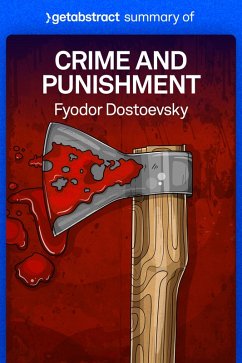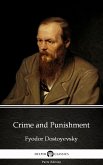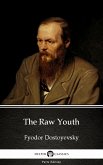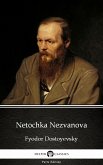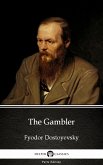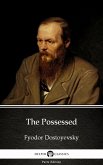Could you commit the perfect crime? Is there such a thing as a "just murder" that costs the life of one person but benefits many others? Can rational considerations silence the human conscience? Fyodor Dostoevsky investigates these questions in his classic novel Crime and Punishment. The best-known work of this Russian author masterfully depicts the destitute student Raskolnikov's murder of an old pawnbroker and his subsequent agony of conscience. Raskolnikov considers himself a kind of superman, compares himself with Napoleon and tries to justify his actions with rational arguments. But after the murder, he slides into a slow, gnawing despair. The virtuous prostitute Sonja finally persuades him to admit his guilt and start a new life. Dostoevsky, committed to Russian realism, describes the social misery on the streets of St. Petersburg. In easy to understand but gripping language, he succeeded in writing not only one of the greatest crime novels of all time as well as an intriguing psychoanalysis that illuminates the abysses of a murderer's soul.
This summary of Crime and Punishment was produced by getAbstract, the world's largest provider of book summaries. getAbstract works with hundreds of the best publishers to find and summarize the most relevant content out there. Find out more at getabstract.com.
This summary of Crime and Punishment was produced by getAbstract, the world's largest provider of book summaries. getAbstract works with hundreds of the best publishers to find and summarize the most relevant content out there. Find out more at getabstract.com.
Dieser Download kann aus rechtlichen Gründen nur mit Rechnungsadresse in A, D ausgeliefert werden.

